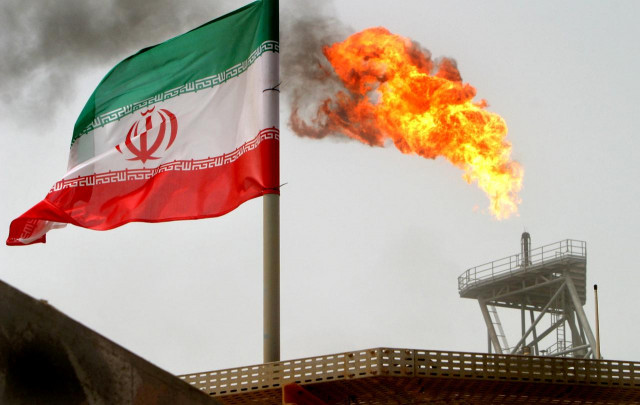European powers launch mechanism for trade with Iran
Diplomats, however, say it is unlikely to lead to big commercial deals

Diplomats, however, say it is unlikely to lead to big commercial deals. PHOTO: REUTERS
Washington's major European allies opposed last year's decision by President Donald Trump to abandon the 2015 deal, under which international sanctions on Iran were lifted in return for Tehran accepting curbs on its nuclear programme.
Iran has threatened to pull out of the deal unless the European powers make it possible for it to receive economic benefits. The Europeans have promised to help companies do business with Iran as long as it abides by the deal.
Iran facing the toughest economic situation in 40 years, says Rouhani
Washington says that although Iran complied with the terms of the deal, the accord was too generous, failing to rein in Iran's missile programme or curb its regional meddling.
European countries share some of Washington's concerns but say abandoning the nuclear deal would not help address them.
New US sanctions have largely succeeded in persuading European companies to abandon plans to invest in Iran.
The new European trade vehicle was conceived as a way to help match Iranian oil and gas exports against purchases of EU goods.
However, those ambitions appear to have been toned down, with diplomats saying it could realistically be used only for smaller trade permitted by the Trump administration, for example of humanitarian products or food.
"It won't change things dramatically, but it's an important political message to Iran to show that we are determined to save the JCPOA (Iran deal) and also the United States to show we defend our interests despite their extraterritorial sanctions," one European diplomat said.
Rob Malley, a former Middle East director at the US National Security Council under president Barack Obama and now at the International Crisis Group think tank, said that although the economic impact would be modest, there was hope the political symbolism could help persuade Tehran to stick to the deal.
The EU has already spent months preparing the system and it is unlikely to become operational for several more months.
EU hits Iran with sanctions after murder plots
The Instrument In Support of Trade Exchanges, or INSTEX, is registered in France and will be headed by German banker Per Fischer, a former Commerzbank director.
The three European powers are shareholders and hope other states will join later, although a senior German official said this was not imminent.
The US embassy in Germany said on Thursday it was seeking additional details about the mechanism, but did not expect it to affect its effort to apply maximum economic pressure on Tehran.


1733130350-0/Untitled-design-(76)1733130350-0-208x130.webp)
















COMMENTS
Comments are moderated and generally will be posted if they are on-topic and not abusive.
For more information, please see our Comments FAQ